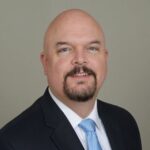By Debbie Abel, AuD, and John Coverstone, AuD
Who doesn’t love “FREE?” After all, Coco Chanel once said “The best things in life are free.” Of course, she went on to say, “The second-best things are very, very expensive.”
History about Free Hearing Testing
Offering free hearing testing continues to be common in audiology. This has not always been the case – in fact, audiologists for decades charged only for their time and services. At that time, an audiologist would perform the diagnostic testing, send the patient to a hearing instrument dealer (the most common term at the time) to purchase the device and possibly fit it. The patient would often return to the audiologist for the fitting and follow-up care.
In the late 1970s and early 1980s, many audiologists decided that they could sell the hearing instruments just as well and began to do so, even though it meant giving up certification and membership in ASHA, the only major professional organization at the time. ASHA’s code of ethics, however, did not allow a member to profit from sales of devices.
When audiologists made this move, they began entering into a competitive sales position with the hearing aid dealers who were formerly working in partnership. This eventually led to many audiologists taking a more sales-oriented approach to clinical practice, including increasing their marketing (I still remember my father – a landscape architect – telling me in the 1970s that it was generally understood and agreed upon that professionals did not advertise). Over the years, this evolved to marketing free hearing testing in order to attract prospective hearing aid patients into the office.
Hearing instrument dispensers were forced by this move to do all their hearing testing in-house. Referring a patient to the audiologist for the exam would likely result in a lost sale if the audiologist was dispensing as well. Therefore, only those with indicated need for medical examination were referred elsewhere.
Hearing instrument dispensers are not recognized nor reimbursed for testing by Medicare and most other insurance carriers. Therefore, offering the testing for free to get people in the door seemed to make sense.
Does Hearing Testing Drive Patient Flow?
Does it make sense for anyone, though? There is no data to indicate whether a free hearing test truly drives more people to seek hearing aids. Many people certainly believe it does.
What would the expense be to charge for your time?
In the case of audiologists, hearing exams are nearly universally covered by insurance as long as medical necessity is met. Currently, Medicare requires a physician order and medical necessity for diagnostic audiology services when performed by an enrolled Medicare audiologist.
Audiologists cannot opt out of Medicare. For those audiologists who are not enrolled (which is different than opting out and will not be possible), then all diagnostic services for all patients must be priced at no charge or “free.” Again, there’s “free.”
Technically, the Medicare diagnostic hearing evaluation is still “free” for the patient (barring co-pays and deductibles, which are often met at some point during the year anyway). Dispensers do not have this option, but is free still the best policy?
The Cost of “Free”
There is a cost to free, both intrinsic and extrinsic. In recent years, we have started to see real examples of the former and we need to be careful that we don’t “free” ourselves from the ability to conduct our business.
The intrinsic cost of free is the message it sends regarding the value of your time and expertise. The very first encounter you have with a new patient/client/customer is one in which you loudly (remember, actions speak louder than words) declare – my time and expertise are worth NOTHING! What a great way to start a relationship in which you should be building trust with a patient to value your opinion, recommendations, and direction for care regarding hearing instruments.
After all, if your time and expertise isn’t worth anything when conducting diagnostics, why should it be valued when you make a recommendation or provide counseling?
This business strategy sets a tone with patients that can result in lower confidence in you as a healthcare provider and a greater likelihood to devalue your recommendations. The patient may end up going elsewhere or may just return the hearing aids and give up during those difficult early days of use. Getting started with hearing aids for the first time is tough for many people. If all the value is placed on the devices and the devices don’t make everything better right away, you may be setting your patients up for failure.
The extrinsic cost is a significant threat to local practices. By devaluing hearing testing, the public has gotten the message that it isn’t all that important and your other services must not be important either. Therefore, the hearing aid is the only thing of value and I can get one *ONLINE* for much less!
If all the value is placed on the device, then why should people come to YOU? When there are OTC hearing aids sold in retail stores, why should people come to YOU? You don’t provide anything additional of value, do you? If you do, you had better start sending that message before it is too late.
Forming Professional Value
So, what CAN you do to attract people to your office, promote hearing care, and quickly qualify people as candidates for amplification?
One way is to offer screenings. These inherently have limited value, do not require a great deal of expertise and are not generally reimbursable by insurance – therefore negating conflicts with Medicare regulations. There is a significant amount of confusion regarding a free hearing screening and a free hearing test and what the provisions are for use by audiologists and hearing instrument specialists.
To be clear, a screening is a pass or fail response at the same pre-established decibel level at several frequencies. The patient hears the presented pure tone, or they do not. They are then referred for an evaluation if they did not pass the screening. Medicare does not recognize screenings for payment nor do many other payers, regardless of who the provider is.
A traditional, non-screening hearing test could be pure tone air conduction audiometry (CPT© code 92552) or CPT© code 92557, comprehensive audiometry threshold evaluation and speech recognition. Given that these two codes are listed on the Medicare Physician Fee Schedule and reimbursed by Medicare and other payers when performed by an audiologist, any procedure, including 92552 and 92557, cannot be given away for free to any patient when performed by a Medicare enrolled provider and filed to Medicare, according to the Office of the Inspector General in the December 19, 1994.1 Specifically listed as “some indicators of potentially unlawful activity” is “Charges to Medicare beneficiaries which are higher than those made to other persons for similar services and items (the higher charges offset the waiver of coinsurance).”
A hearing instrument specialist is not currently recognized as a Medicare provider. As directed by their license that promulgates all licensed health care providers’ scopes of practice, they are only allowed to test for the sole purpose of fitting a hearing aid.
Given that the Medicare regulations were not, nor are applicable, to hearing instrument specialists, they were able to offer free testing as a marketing incentive as the only provider dispensing hearing aids prior to 1978. Many audiologists offer free testing as well to capture hearing aid patients, but if that same audiologist is enrolled in Medicare and giving away a free test to anyone and billing Medicare for the same test, that is hugely problematic and could be considered “unlawful activity.”
The Medicare Conundrum
A conundrum for audiologists is that several of the Third-Party Administrators require contracted audiologists to provide free testing, likely for Medicare Part C Advantage plans. Those payers don’t indicate what that tests are required. A hearing aid evaluation/functional needs assessment or a test for an HAE to determine the level and degree of hearing loss for hearing aids under traditional Part B Medicare are statutorily excluded.
Part C plans may cover services that Part B does not, so know your contractual requirements. An unknowing contracted audiologist could position themselves in a problematic situation and should consult their own practice’s legal counsel for advice.
Not only is Medicare billing a potential legal issue, it is an economic issue in providing and proving value for your time and expertise. As the audiology landscape changes, offering value and valued services will become more critical to be financially solvent.
Free services hold no value and lend nothing to maintain your practice’s revenue stream.
The current and future landscape include a consumer who wants to purchase a hearing aid online and only needs the test performed; there may be a patient who expends an hour of your time and expertise and decides not to purchase at that time, now a no-charge visit if you don’t charge for your services. It would be a drastic step to begin charging for those same services when they were given away for free just the week prior. At the very least, that may appear disingenuous and could affect the trust factor between the provider and the patient. Once that has been breached, there is usually no amount of reparation.
It is the intent of this blog to keep you compliant, viable, and valuable as the landscape shifts.
References:
- Federal Register: December 19, 1994, DEPARTMENT OF HEALTH AND HUMAN SERVICES, Publication of OIG Special Fraud Alerts, AGENCY: Office of Inspector General, HHS, ACTION: Notice.
About the Authors:
 Debbie Abel, AuD, is Manager of Coding and Contracting Services for Audigy. Previously, Dr. Abel served as Senior Specialist of Practice Management for the American Academy of Audiology, and owned a private practice in Alliance, OH. Dr. Abel is the editor of The Essential Guide to Coding in Audiology: Coding, Billing and Practice Management and a respected author. Dr. Abel is President Elect of the Academy of Doctors of Audiology.
Debbie Abel, AuD, is Manager of Coding and Contracting Services for Audigy. Previously, Dr. Abel served as Senior Specialist of Practice Management for the American Academy of Audiology, and owned a private practice in Alliance, OH. Dr. Abel is the editor of The Essential Guide to Coding in Audiology: Coding, Billing and Practice Management and a respected author. Dr. Abel is President Elect of the Academy of Doctors of Audiology.
 John A. Coverstone, AuD, is President and CEO of Sentient Healthcare, an audiology consulting company and parent company of Audiology Ear Care clinic in New Brighton, MN, where he provides clinical and educational audiology services. In addition, Dr. Coverstone is co-founder and inaugural President of the Audiology Practice Standards Organization in 2018. He has served on the Board of Governors for the American Board of Audiology. Dr. Coverstone also serves as co-host of AudiologyTalk, a monthly podcast for audiologists available at www.audiologytalk.com, and of Conversations in Tinnitus, a official podcast for the American Tinnitus Association.
John A. Coverstone, AuD, is President and CEO of Sentient Healthcare, an audiology consulting company and parent company of Audiology Ear Care clinic in New Brighton, MN, where he provides clinical and educational audiology services. In addition, Dr. Coverstone is co-founder and inaugural President of the Audiology Practice Standards Organization in 2018. He has served on the Board of Governors for the American Board of Audiology. Dr. Coverstone also serves as co-host of AudiologyTalk, a monthly podcast for audiologists available at www.audiologytalk.com, and of Conversations in Tinnitus, a official podcast for the American Tinnitus Association.







Years ago I joined Medicare and inform potential patients that because I charge Medicare I cannot give free tests. In some cases, when their insurance pays for hearing aids but not testing I refer to a local medical center that does not accept insurance coverage for hearing aids. The patient is tested and I get the findings, apply for approval and fit the patient.